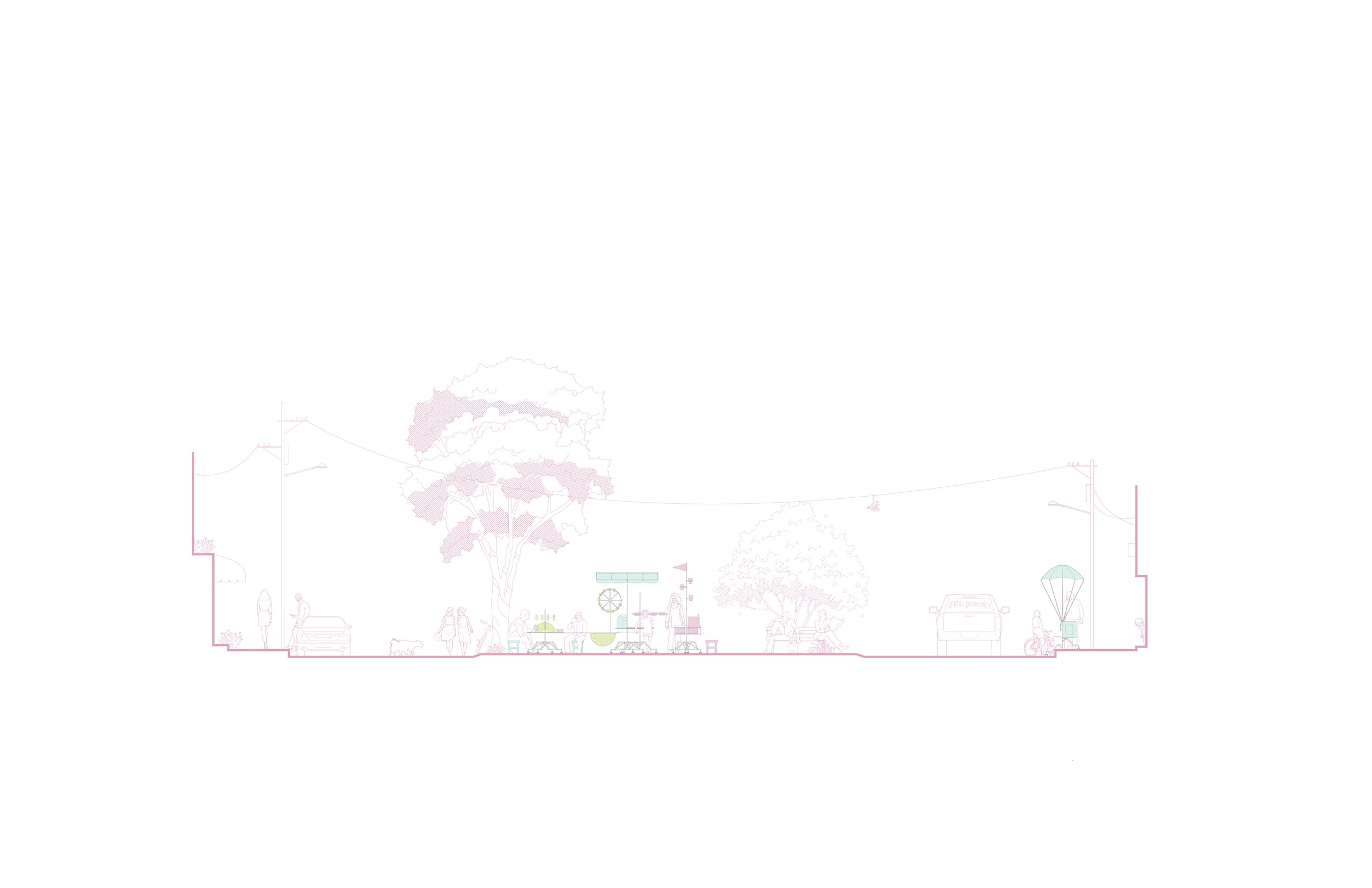El Elotero, El Paletero, y La Pozolera: Spatial Interventions of Latino Street Vendors
Year: 2020
In collaboration with the Honors Creative Work Department and the Center for Mexican American Studies at the University of Houston, this project explores how Latino spatial interventions in an urban environment can influence the physical development of Mexican American communities. The design proposal includes research into the physical and socio-spatial arrangements developed by Latino food vendors and how to architecturally encourage this process.
Through a growing increase of American based fast-casual restaurants and food trucks, there is an evident rise in the separation between formal establishments for food and the accessibility to consumers. This spatial shift, along with a yearly increase of Latinos in the U.S., offers a view into the future of food culture and urban development.
As a popular form of community building through personal interaction and shared experience, vendor carts can become architectural opportunities for urban renewal and revitalization of Latino spaces in the U.S. This resulting architectural proposal aims to detail and expand on the relationship between food service and place in the context of Mexican American urban communities. More specifically, how spatial interventions in an urban environment occupied by Latinos can influence the physical development of their community. This project includes research into the physical and socio-spatial arrangements developed by Latino food venders and how to architecturally encourage this process.
Each individual vendor requires specific functional conditions that are met through the adapting cart modules.
In the case of El Elotero, elotes are generally prepared at request, demanding a grill surface for roasting and warming corn cobs. The structural frame provides support for portable propane tanks and storage for the elote ingredients.
La Pozolera requires a very different module system, as many pozole puestos include room for dining and service. To support this process, the carts should not only act as instruments for cooking large quantities of broth and meat, but extend outwards to accommodate her customers as their bowl is prepared. Depending on the assembly type of her pozole, the extending paths and surfaces should provide easy access to the many add-ons of the popular Mexican dish.
Finally, El Paletero serves an iconic role in street vending culture, roaming the streets with his frozen products under a scorching sun. His module will require adequate storage at a controlled temperature, being continuously open and closed for access to paletas. Further arrangements for and signage are supported by the structural frame of cart modules, latching on to the central pole through clamps and surface threading.



